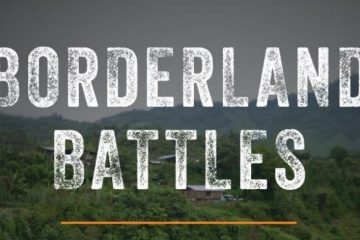
Disease Knows No States: Towards an International ‘Biorelations’
Michel Foucault refers to biopolitics as “the processes by which human life, at the level of the population, emerged as a distinct political problem in Western societies”. Yet for Foucault, ‘biopower’ – power over human life at the population level – remains a force strictly wielded via individuals. This neglects the global biopower wielded by biology itself. Given the sheer influence of disease on global politics, we must move to considering ‘international biorelations’: a study that recognises diseases as significant non-state ‘actors’ shaping geopolitical landscapes and giving rise to critical, yet often neglected, transstate dynamics. Doing so would help us capture the co-constitution of global health forces and international structures, reveal the limitations of state-centric IR scholarship, and better understand …

Borderland Battles: Violence, Crime and Governance at the Edges of Colombia’s War
Anette Idler summarizes some of the findings from her new book Borderland Battles, which reveals how violent non-state groups compete for territorial control, co-operate in illicit cross-border activities and replace the state in exerting governance functions in borderlands. Borderlands are like a magnifying glass on some of the most entrenched security challenges of the world. In unstable regions, border areas attract violent non-state groups ranging from rebels and paramilitaries to criminal organisations who exploit their neglect by central governments. These groups compete for territorial control, cooperate in illicit cross-border activities, and substitute for the governance functions usually associated with the state. Studying the Colombian borderlands where armed conflict and organised crime converge demonstrates that the gap between state-centric views on …









